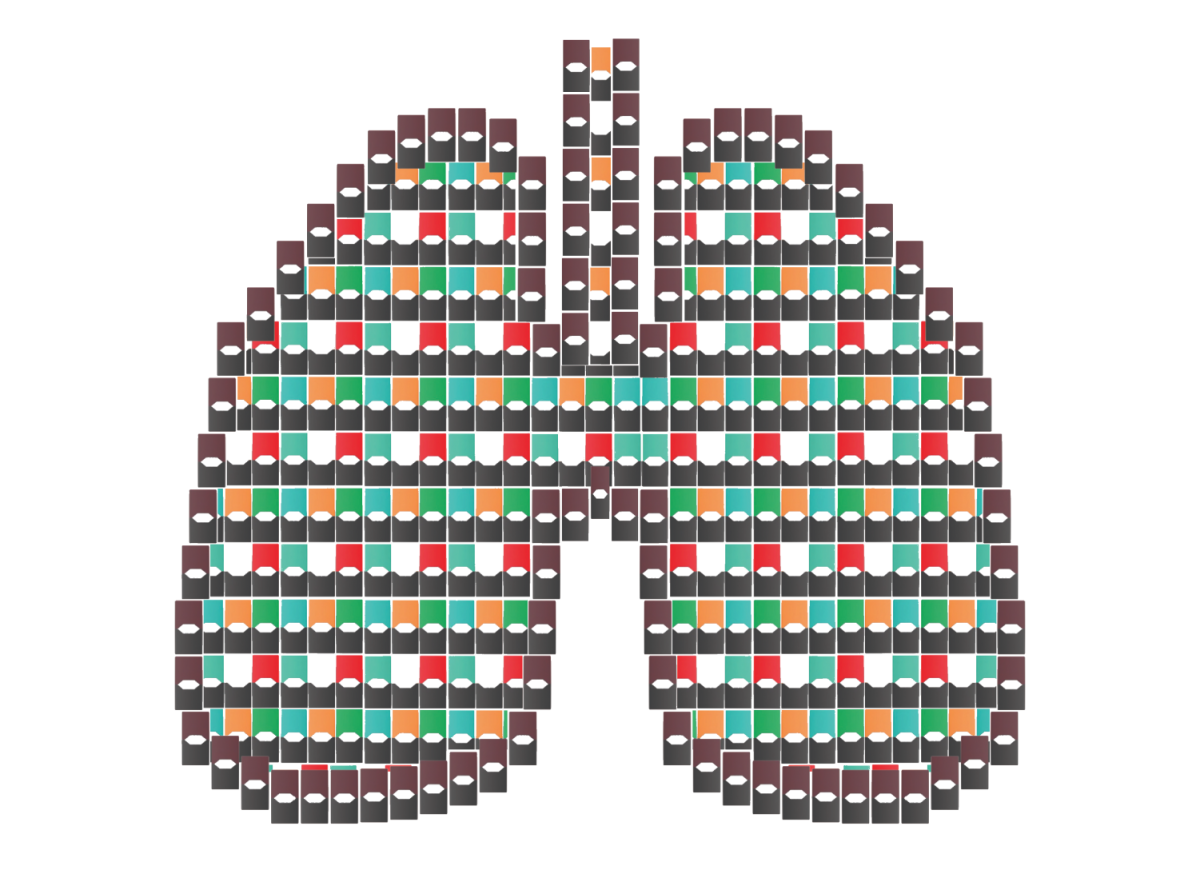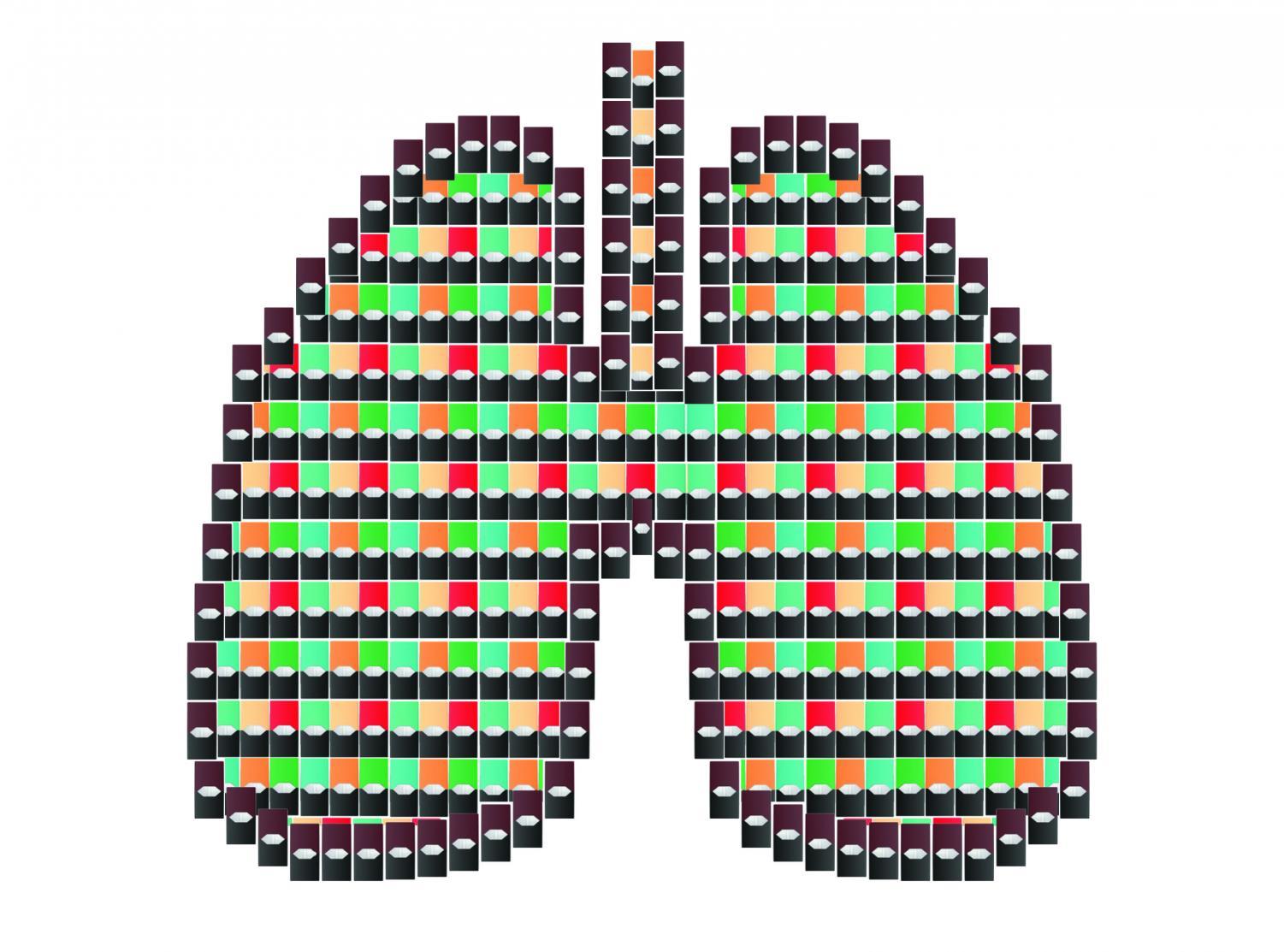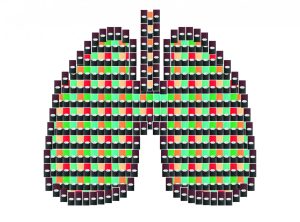Recent deaths related to e-cigarette products opened the door for Texas State health professionals to share concerns as well as nationwide proposals for legal action.
Cases of what is described as “acute lung disorder” have recently spread rapidly, including six deaths of the 380 reported lung illnesses in 2019 as of Sept. 16. Symptoms of the disorder include coughing and intense chest pains; individuals may additionally experience shortness of breath. 
While similar  cases have appeared in the past, health officials believe the recent spike may be related to the unintentional consumption of a toxin within the substance in vape devices.
No particular product has been linked to these trends in health emergencies. The Center for Disease Control stated several of the aforementioned cases  were tied to the use of THC vape products, though nicotine devices were directly involved. 
The National Youth Tobacco Survey reported in 2018 up to 28% of high school students used a form of tobacco or e-cigarette product within the twenty days before the survey. 
According to the report, up to 7.2% of middle school students use vaping products. In May 2019, the  National College Health Assesment survey  Texas State participates in stated 16.3% of Texas State students used e-cigarettes within 30 days before the survey was conducted.
Dr. Emilio Carranco, director of the Student Health Center, said e-cigarettes have the potential to cause damage to brain development in adolescents. 
“As research is coming out, what we’re discovering is electronic cigarettes cause an awful lot of harm to adolescents and young adults,” Carranco said. “What we’re finding is nicotine can harm a part of the developing brain in young people responsible for attention, learning and mood. The nicotine is leading to a higher risk of addiction to other drugs.”
Carranco recommends seeking a medical provider to discuss ways to approach the quitting process. The health center’s tobacco cessation research indicates a higher success rate among cigarette quitters who seek support and education from a professional. 
The Student Health Center provides smoking cessation aids in its pharmacy at a significant discount so students can more likely afford the aids if they are attempting to quit.
Carranco said the  Student Health Center’s smoking cessation program  is a service including a variety of approaches to help smokers quit.
“(The cessation program) is administered by our registered nurses and is modeled after the QUIT program developed by the federal government,” Carranco said. “It’s a combination of education, understanding what your triggers are, understanding how you might be able to deal with cravings and having support from others who know you are on this journey.”
Recent efforts toward controlling the sale of e-cigarette products have been made. Michigan became the first state to ban the sale of flavored e-cigarettes in the first week of September 2019. 
Additionally, up to 18 states raised the minimum age to 21 years old for purchasing nicotine products in July 2019. The states include Texas, Arkansas, California, Connecticut, Delaware, Hawaii, Illinois, Maine, Maryland, Massachusetts, New Jersey, New York, Ohio, Oregon, Utah, Vermont, Virginia and Washington.
Garrett Stapleton, employee at Marvelous Smoke shop in downtown San Marcos, said he questions the ethics of the ban in Michigan while supporting the decision to increase the age for people buying nicotine products in Texas.
“A ban seems preemptive; tons of people die almost every day from cigarettes but a few people get sick from vaping and now everyone freaks out,” Stapleton said. “Twenty-one-and-up is a good thing. Obviously it’s gonna hurt business but if it’s for the better of everyone it’s a good thing overall.”
The Trump administration began preparations Sept. 11 for a nationwide ban on various flavored vape products and unspecified e-cigarettes, almost immediately following the Sept. 10 news of a sixth death in the country from vaping-related lung disease. Debates on whether a nationwide ban would be beneficial rapidly spread.
Hannah Barragy, criminal justice senior, said she believes a ban will do more harm than good due to potential increases in faulty products.
“I think a ban will deter a small portion of kids currently using vaping products but like other illegal substances, people will find a way to gain access to them,” Barragy said. “(A ban) could increase the sales of knock-off products more dangerous than the legitimate product since there’s no regulation to the manufacturing or ingredients behind them.”
Debates over vaping laws will extend to the federal level when the Trump administration proposes legislation. Time will tell if medical emergencies related to electronic cigarettes will become consistent. 
For more information on illnesses correlated to vaping products, visit the  Food and Drug Administration website. 
What do you think should be done about e-cigarettes?
- Ban all e-cigarettes (58%, 7 Votes)
- Nothing (25%, 3 Votes)
- Ban flavored e-cigarettes (17%, 2 Votes)
Total Voters: 12
Loading …








